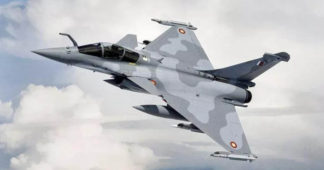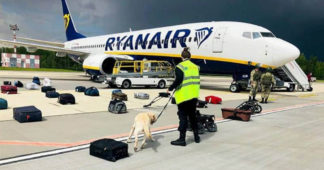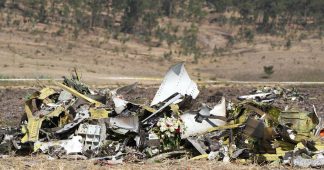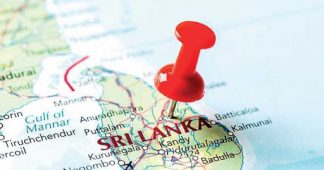By Jerry White
With the peak summer travel season beginning, the global airline industry is being stretched to the point of complete breakdown. Understaffed flight crews and airport employees are exhausted; airlines face a shortage of manpower, planes and equipment; and stranded passengers and lost luggage are piling up at airports.
More than 4,500 US-related flights were canceled over the Father’s Day and Juneteenth holiday weekend, and analysts expect the July 4 weekend, one of the busiest air travel dates, to be worse. The chaos could persist for months, they say, if not years.
Understandably, pilots and flight crews are reluctant to return to jobs where they are crammed into airports and aircraft with hundreds of passengers and no measures to stop the spread of COVID-19 in place. Passengers are not even required to mask, and workers are routinely forced to work inhumanly long hours, with deadly consequences if they make errors due to fatigue.
On Tuesday, over 1,300 Southwest Airlines pilots marched in Dallas, Texas to protest fatigue, stress, staff shortages and bad scheduling. Delta pilots say they have flown more overtime in 2022 than in the entirety of 2018 and 2019 combined, their busiest years to date.
Pilot fatigue is a deadly danger in air travel. Knowing they hold the safety of their passengers in their hands, the number of pilots calling off work due to fatigue has reached record numbers.
French pilots said efforts by the low-cost UK carrier EasyJet to deliver a full schedule of summer flights “with less flight crew, cabin crew, or flight planning officers” had “left hundreds of employees in distress.”
The crisis is due to the criminal and profit-driven response by the airlines and world governments to the COVID-19 pandemic. Tens of thousands of airline workers have been sickened and debilitated by COVID-19, and an unknown number of have died. Before vaccine mandates for airline workers started in the summer of 2021, one United Airlines employee was dying every week.
During a meeting in Doha, Qatar on Monday, airline executives denounced workers for refusing to risk their lives. “People got into a bad habit of working from home” during the pandemic, Akbar Al Baker, the head of host airline Qatar Airways, told reporters. “They feel they don’t need to go to an industry that really needs hands-on people,” he said, adding that shortages in airport staff could “hurt growth,” according to Reuters.
With large numbers of pilots in the US set to retire in the coming years, industry lobbyists are now pushing to increase the retirement age from 65 to 67. Incredibly, they are calling for the rollback of the federal requirement that new pilots have 1,500 hours of flight time before they qualify as air transport pilots and fly as first officers. There has been a 99.8 percent reduction in airline fatalities since the requirement was increased from 250 hours in 2013.
These conditions are provoking a movement of pilots, cabin crew and other airline employees across Europe, the US and the world.
- The pilots union at Air France-KLM has called a one-day strike for Saturday, June 25.
- Ryanair cabin crews in Belgium, France, Italy, Portugal and Spain have called for strikes this coming weekend, while EasyJet’s operations in Spain face a nine-day strike, starting July 1, to demand a 40 percent raise.
- Workers at Paris’ Charles de Gaulle and Orly airports are set to strike July 2 to demand wage increases, after a one-day walkout by groundcrew and firemen last week.
- More than 50 departures were canceled at Norway’s airports on Tuesday and Wednesday due to an aircraft technicians’ strike.
- In the US, 6,100 customer service workers at Southwest just rejected a second contract proposal backed by the International Association of Machinists because it included below-inflation rate raises. Alaska Airline pilots have voted to strike, and pilots and other workers at Southwest, Delta, United, American and other US carriers are engaged in contract fights.
When the pandemic first hit, US airline executives lobbied for and received some $63 billion in federal stimulus money, ostensibly to prevent layoffs when air travel collapsed. Instead, they promptly forced out 80,000 workers through “voluntary buyouts” and early retirements. After receiving their own government bailouts, Lufthansa, KLM and other European and international carriers did the same.
According to research by consultancy Oxford Economics, cited by the Financial Times last week, compared with pre-COVID levels, there were 2.3 million fewer jobs in the aviation industry by September 2021. “These figures include a 29 percent fall in contracted staff at airports, such as ground handlers, where 1.7 million jobs were lost,” the Financial Times wrote.
With the government bailout money in hand, airline executives aggressively pushed to lift travel restrictions and any measures to protect workers and passengers, which they saw as cutting across their profit interests.
On December 21, 2021, Delta Airlines CEO Ed Bastian wrote the Centers for Disease Control and Prevention saying a reduction in the quarantine period for infected workers would “significantly impact our workforce and operations.” Less than a week later, Biden’s CDC director, Rochelle Walensky, cut the quarantine period from 10 days to 5, compelling sick workers to return to their jobs.
In April 2022, Nicholas Calio, president of Airlines for America, the largest lobbying association of America’s airlines, wrote a letter to federal officials urging the government to lift mask mandates for all air travelers and end the requirement for COVID-19 testing for international travel, declaring, “Neither restriction is currently supported by data and science in today’s public health environment.”
In May, the Biden administration allowed mask mandates on trains and planes to end. Then, on June 10, the CDC dropped testing requirements for air travelers entering the US.
The Biden administration has adopted a “let it rip” policy even as new subvariants of the deadly and debilitating virus spread across the country.
Airline workers, like UK rail workers and other sections of the working class, are saying “Enough is enough!” This growing opposition, however, needs organization and a political strategy.
The nationalist and pro-capitalist policies of the unions, which pit workers against each other in a fratricidal race to the bottom, have led airline workers to a dead end. New rank-and-file controlled organizations are needed to coordinate their struggles across national boundaries against these global corporations. That is why the International Workers Alliance of Rank-and-File Committees (IWA-RFC) was founded last year.
An industrial counter-offensive of the working class must be combined with a conscious political fight against capitalism.
The crisis in the airline industry is the product of decades-long promotion of the “free market” by capitalist governments around the world. The deregulation of the airline industry in the US and Reagan’s 1981 smashing of the PATCO air traffic controllers’ strike were the first shots in a war against airline workers. This was followed by the privatization of state-owned airlines in country after country, a wave of bankruptcies, mergers and mass layoffs, and the emergence of “budget airlines” that spurred cutthroat competition and the undermining of safety and working conditions.
The crisis and failure of capitalism is now apparent for all to see: In the record surge of inflation, shortages of essential commodities, the ongoing pandemic, and the squandering of society’s resources on the enrichment of the corporate and financial oligarchy and their mad plans for World War III. The global airline industry must be transformed into a public utility, democratically controlled and collectively owned by the working class, as part of the socialist reorganization of the global economy.
We remind our readers that publication of articles on our site does not mean that we agree with what is written. Our policy is to publish anything which we consider of interest, so as to assist our readers in forming their opinions. Sometimes we even publish articles with which we totally disagree, since we believe it is important for our readers to be informed on as wide a spectrum of views as possible.











